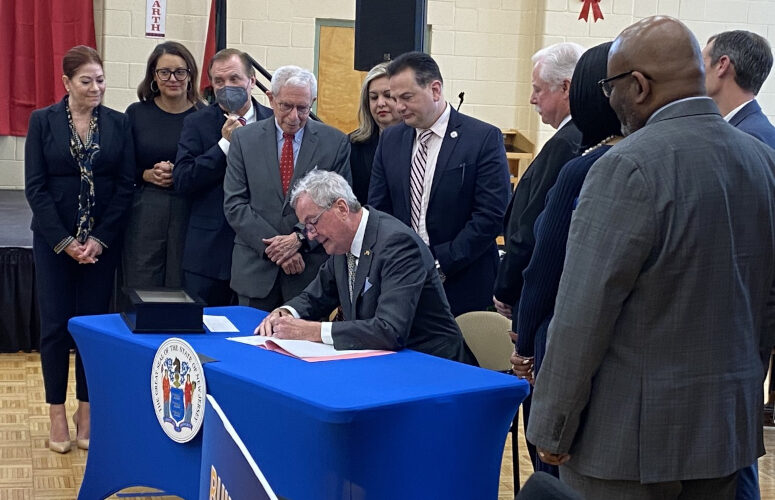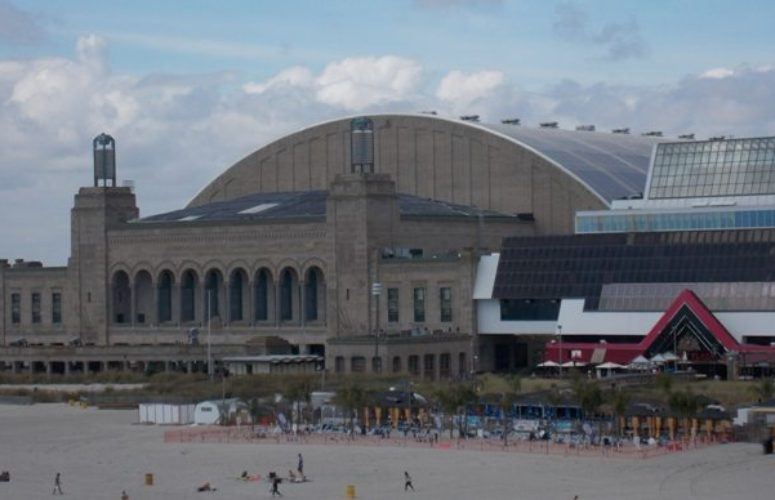
Signed Legislation Expedites Building Permitting Process
By Anthony Birritteri, Editor-in-Chief On Jan 5, 2023A new law was signed by Gov. Phil Murphy today with the intent of speeding up the permitting process under the State Uniform Construction Code Act. The bipartisan legislation (A-573), which had the support of business organizations such as the New Jersey Business & Industry Association and construction trade groups, is expected to be a boost to businesses and those seeking affordable housing by modifying certain standards in inspection processes.
At the bill signing today in Elizabeth, Murphy explained that under the legislation “local governments will have several avenues to go down to improve their ability to conduct inspections in a more timely manner.”
These avenues include: codifying a three-day construction inspection turnaround from the date of a requested inspection and allowing a developer to contract with a private on-site inspection agency if local construction officials cannot complete the inspection within the three-day timeframe; giving municipalities the ability, through a streamlined bidding process, to hire private inspection agencies; and having municipalities enter into shared services agreements with neighboring towns to consolidate inspection work.
The governor said that the Department of Community Affairs (DCA) will have expanded powers to hold local officials to their duties and deadlines. He added that final construction approval and sign off of a certificate of occupancy will still come from a local construction official.
“Many developers, contractors and homeowners know the frustration of having a project reach the stage where it needs an inspection to move forward, only to have the inspection delayed,” Murphy said. “These delays could easily add days or months to a project and can mean the difference between a house being built in time for move in or an apartment building delivering on time to meet its financial obligations. As builders and homeowners can tell you, time is money.”
According to NJBIA President and CEO Michele Siekerka, “The law provides a more expeditious process for obtaining construction inspections, which is greatly needed to avoid unnecessary delays for certificates of occupancy. It leverages the private sector, similar to the way the successful Licensed Site Remediation Professionals program operates to help effectuate timely cleanups of contaminated sites in New Jersey. And it does so while still being protective of public health and safety.”
Lt. Gov. Sheila Oliver, who heads the New Jersey Department of Community Affairs (DCA), said that while the legislation focuses on expediting the building inspection process, “it is not being done at the expense of building safety. Our Division of Codes and Standards is hardnosed, it is not cutting corners. Safety is the rule.”
Murphy said the law will also promote housing affordability and keep the state’s economic recovery going. “Whether it is a business looking to move into one of our communities or expand its current operations, or a family looking for a new or improved place to call home, this law will keep our construction industry and the jobs it supports moving forward. It will also get families into safe and affordable homes.”
The legislation’s sponsor, Assemblyman Robert Karabinchak (D-18), said many stakeholders were involved in the process: “We talked to every single group this touched. At end of the day, this was a collaborative effort of great government.
“Additionally, this bill will help people who need affordable housing get there sooner. This is important for … their lives,” Karabinchak said.
On the affordable housing front, Murphy announced that the DCA will be awarding $6.8 million in grants from the Affordable Housing Trust Fund. “These funds will help bring online 20 new affordable housing units in Elizabeth, 10 in Camden, and 6 in East Orange.”
Additionally, Murphy said the DCA will be deploying another $12 million from the Federal National Housing Trust Fund, which provides 0% interest loans to housing developers for the development or rehabilitation of rental units for low-income residents. These funds will be shared across 13 projects in 12 municipalities throughout the state. A total of 42 units will be created.
To access more business news, visit NJB News Now.
Related Articles:





